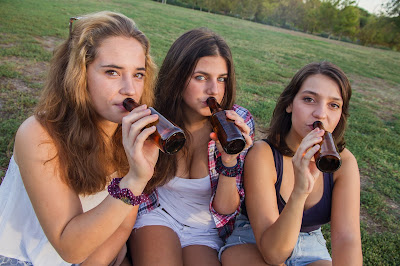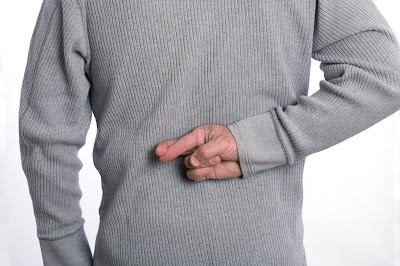While I was overseas on business last week an Australian study was published that apparently received a great deal of media attention. Researchers from UNSW followed young people from 13 to 30 and found that "early patterns of drinking are not limited to adolescence but rather persist into adulthood and are associated with a range of alcohol-related problems." This study provides one more important piece of the puzzle when it comes to helping parents make decisions around their child and alcohol. We've long known the dangers associated with 'binge drinking' (drinking to get drunk) and parents are now far more aware of the importance of delaying their child's first drink of alcohol for as long as possible (i.e., delay, delay, delay), but this research has found that how often a teen drinks is also a predictor of possible future problems.
No longer can a parent say "Well, he only has a couple of beers when he goes to a party on a Saturday night. He never gets drunk" believing that this could be promoting long-term 'responsible drinking'. If a teen is drinking every weekend, even a small amount, that could be just as problematic as going out once in a while and getting smashed when it comes to later-life problem drinking. Put simply, alcohol and teens don't go together no matter how you look at it!
As I said, I was overseas when this research hit the media but I did hear that it got quite a run and questions were raised about what could be done about limiting the harm associated with alcohol as far as young people are concerned. Not surprisingly, the issue of raising the legal drinking age from 18 to 21 was once again brought up as a possible solution and, according to some people who have contacted me since, it became the issue of the day across breakfast television, radio talkback programs and social media. Researchers and public health advocates are asked to comment on the topic and discuss the evidence around delaying alcohol consumption and the subsequent response from Mr and Mrs Normal from the suburbs is usually varied - some horrified by the thought (usually harping on about the 'nanny state' and the like) and others keen for governments to make the change. These polarised views are what breakfast television and radio love ... but when it really comes down to it, is a change to the legal drinking age ever going to really happen?
My answer is always the same - absolutely not! So if it's never going to happen, why do we continue to waste our time even talking about it?
Let's make something perfectly clear here, if we actually looked at the evidence there is no way that we would allow anyone to drink until at least 21, and for young men it would most probably be 25 years of age before we considered drinking alcohol to be low risk. This is due to the increasing evidence we now have around alcohol and the developing brain. The interesting thing is that at a time when we know more about the harms and that we should definitely delay drinking for as long as possible, many parents are actually introducing their children to alcohol at a younger and younger age.
This is essentially why the drinking age argument keeps popping up - it keeps the issue of underage drinking in the public consciousness and highlights the risks associated with adolescent drinking
Why then do I think we'll never see the legal drinking age rise? Well, firstly and most importantly, most people simply don't support the idea (according to the latest NDSHS report the number of Australians supporting 'raising the legal drinking age' actually decreased from 48% to 42%). Not only do most Australians not support the idea, but growing numbers do not regard it as a viable option. Parents may be outraged at seeing young teens drinking but for many of them, when it comes to their own children, they don't necessarily want them to drink but often see it as 'just something all teens do'. The old – "I did it, there's nothing wrong with me!" mentality. Many Australian parents had their first drink before they were 'legal' and most do not believe that drinking at that time caused them great harm. If you can't get parental support for a legal drinking age of 18, how in heavens do you hope to get community support for 21? I just don't think it will ever happen unless we see a major shift in community attitudes and that's not going to happen anytime soon!
Secondly, we have to remember why the drinking age was lowered to 18 in the first place. Although some Australian jurisdictions already had 18 years as the legal drinking age during the Vietnam War, there were other states that had different laws around alcohol. This meant that some young Australians who died for their country during that war were actually unable to drink alcohol, a fact that many found unacceptable (a situation that the US is now attempting to deal with) and the law was subsequently changed.
The debate around raising the legal drinking age will continue (politicians love throwing a media release out about the topic when they want to divert attention away from something else that they don't want to talk about - they do the same when they let slip something about legalizing cannabis or the like!). Certainly we need to keep talking about the risks associated with adolescent drinking and there have been a couple of amazing pieces of Australian research released this year that have provided valuable information helping parents to make far more informed decisions when it comes to their teen and alcohol. We need to be careful, however, that we tread carefully ... Claims of 'wowserism' and the 'nanny state' are getting louder and louder. Even though we are seeing decreasing support for measures such as raising the legal drinking age, I still believe we have the bulk of the community on our side at the moment, push too hard though and we'll lose them!
Read More »
No longer can a parent say "Well, he only has a couple of beers when he goes to a party on a Saturday night. He never gets drunk" believing that this could be promoting long-term 'responsible drinking'. If a teen is drinking every weekend, even a small amount, that could be just as problematic as going out once in a while and getting smashed when it comes to later-life problem drinking. Put simply, alcohol and teens don't go together no matter how you look at it!
As I said, I was overseas when this research hit the media but I did hear that it got quite a run and questions were raised about what could be done about limiting the harm associated with alcohol as far as young people are concerned. Not surprisingly, the issue of raising the legal drinking age from 18 to 21 was once again brought up as a possible solution and, according to some people who have contacted me since, it became the issue of the day across breakfast television, radio talkback programs and social media. Researchers and public health advocates are asked to comment on the topic and discuss the evidence around delaying alcohol consumption and the subsequent response from Mr and Mrs Normal from the suburbs is usually varied - some horrified by the thought (usually harping on about the 'nanny state' and the like) and others keen for governments to make the change. These polarised views are what breakfast television and radio love ... but when it really comes down to it, is a change to the legal drinking age ever going to really happen?
My answer is always the same - absolutely not! So if it's never going to happen, why do we continue to waste our time even talking about it?
Let's make something perfectly clear here, if we actually looked at the evidence there is no way that we would allow anyone to drink until at least 21, and for young men it would most probably be 25 years of age before we considered drinking alcohol to be low risk. This is due to the increasing evidence we now have around alcohol and the developing brain. The interesting thing is that at a time when we know more about the harms and that we should definitely delay drinking for as long as possible, many parents are actually introducing their children to alcohol at a younger and younger age.
This is essentially why the drinking age argument keeps popping up - it keeps the issue of underage drinking in the public consciousness and highlights the risks associated with adolescent drinking
Why then do I think we'll never see the legal drinking age rise? Well, firstly and most importantly, most people simply don't support the idea (according to the latest NDSHS report the number of Australians supporting 'raising the legal drinking age' actually decreased from 48% to 42%). Not only do most Australians not support the idea, but growing numbers do not regard it as a viable option. Parents may be outraged at seeing young teens drinking but for many of them, when it comes to their own children, they don't necessarily want them to drink but often see it as 'just something all teens do'. The old – "I did it, there's nothing wrong with me!" mentality. Many Australian parents had their first drink before they were 'legal' and most do not believe that drinking at that time caused them great harm. If you can't get parental support for a legal drinking age of 18, how in heavens do you hope to get community support for 21? I just don't think it will ever happen unless we see a major shift in community attitudes and that's not going to happen anytime soon!
Secondly, we have to remember why the drinking age was lowered to 18 in the first place. Although some Australian jurisdictions already had 18 years as the legal drinking age during the Vietnam War, there were other states that had different laws around alcohol. This meant that some young Australians who died for their country during that war were actually unable to drink alcohol, a fact that many found unacceptable (a situation that the US is now attempting to deal with) and the law was subsequently changed.
The debate around raising the legal drinking age will continue (politicians love throwing a media release out about the topic when they want to divert attention away from something else that they don't want to talk about - they do the same when they let slip something about legalizing cannabis or the like!). Certainly we need to keep talking about the risks associated with adolescent drinking and there have been a couple of amazing pieces of Australian research released this year that have provided valuable information helping parents to make far more informed decisions when it comes to their teen and alcohol. We need to be careful, however, that we tread carefully ... Claims of 'wowserism' and the 'nanny state' are getting louder and louder. Even though we are seeing decreasing support for measures such as raising the legal drinking age, I still believe we have the bulk of the community on our side at the moment, push too hard though and we'll lose them!










